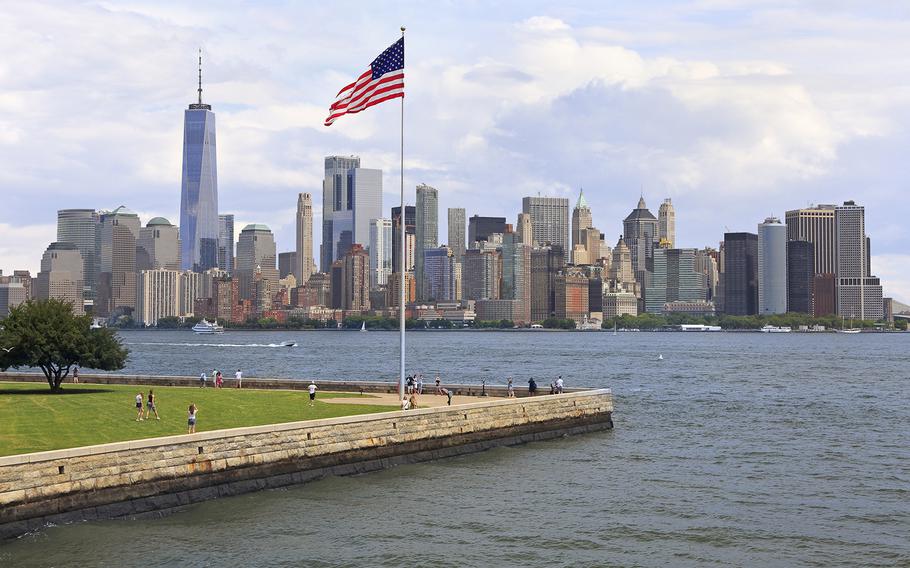
While each state’s system is slightly different, the evidence so far suggests nonpartisan primaries are decreasing polarization and improving governance. (Dreamstime/TNS)
There is growing mainstream consensus that partisan primaries are one of the main causes of government dysfunction. They disenfranchise voters, promote division, and gridlock legislatures. Recognizing this primary problem, Alaska, California, Louisiana and Washington have eliminated partisan primaries. While each state’s system is slightly different, the evidence so far suggests nonpartisan primaries are decreasing polarization and improving governance.
But given how partisan and ideologically extreme most politicians still are, are nonpartisan primaries really enough to save American democracy? While we’re already seeing improvements in the states that have them, the tide won’t fully change until a critical mass of politicians are freed from partisan primaries at the state and national level.
The reality is that even though politicians from four states are already liberated from partisan primaries, their behavior is still affected by the vast majority of lawmakers who aren’t. Recent developments in Washington, D.C., on the debt ceiling and in Nebraska on hot-button social issues help demonstrate this dynamic.
First, consider the debt ceiling debate in Washington. On the surface, it appears that Speaker Kevin McCarthy, of California, along with other Republicans from nonpartisan primary states, were equally as guilty as any for bringing the nation to the brink of default and economic calamity. If nonpartisan primaries are such a force for moderation and good governance, you’d think McCarthy and other Republicans from these states would have been less combative in the negotiations.
Again, back to reality. Republicans from nonpartisan primary states still have to govern with colleagues elected through a partisan primary, and McCarthy is tasked with leading them. Because he needed to appease the far-right Freedom Caucus — all of whom are from states that use partisan primaries — he was less compromising than he might have otherwise been.
Ultimately, McCarthy and lesser-known Louisiana Republican Rep. Garret Graves marshaled enough GOP support for the deal.
In the final vote, 95% of Republicans from the nonpartisan primary states voted for the bill, in contrast to 65% from partisan primary states. Despite this clear statistical difference, representatives from nonpartisan primaries acted more ideological and partisan than they might have otherwise, in an effort to maintain solidarity (and win over) more partisan colleagues elected under the traditional primary system.
For the second example, consider the rightward lurch of Nebraska Republicans and the resulting dysfunction in the state legislature over hot button issues. Nebraska instituted nonpartisan primaries in 1934 when it began holding elections for its unicameral state Senate without party labels. From 1996-2020, Nebraska was the fourth least polarized state government in the nation. (Louisiana, the only other state that has eliminated partisan primaries, was the second least polarized during this period.) So up until recently, Nebraska’s unicameral Senate was held up as a model of civil deliberation and good governance.
However, in recent years, the Nebraska Senate has become as partisan as other states. The same measures that show Nebraska was generally less polarized in recent decades also show that Nebraska has nonetheless been the most rapidly polarizing state over the last decade. This rapid polarization crescendoed earlier this year when Democrats filibustered Republican legislation restricting abortion and treatment for trans youth, grinding the government to a halt for several weeks.
Similar to the congressional debt ceiling example, outside forces were at play in Nebraska. While the state legislature has nonpartisan primaries, the gubernatorial primaries are partisan. In 2014, now-Gov. Pete Ricketts won a very competitive Republican primary for governor with just 26.6% of the vote. He then defeated his Democratic opponent in an uncompetitive general election. Unsurprisingly, Ricketts behaved like a politician who had to worry much more about being outflanked on the right in a primary than about losing to a Democrat in November.
When moderate Republicans in the state Senate opposed his far-right agenda, Ricketts — who is a multimillionaire — recruited and funded conservative challengers. Despite the Nebraska Legislature's nonpartisan primary system, the wealth and involvement of the state’s most powerful politician was enough to sweep these conservatives into office. These Ricketts-supported Republicans introduced the conservative legislation we saw in 2023, including the abortion ban at six weeks.
On their own, nonpartisan primaries appear to enhance meaningful participation, reduce polarization and improve governance. But in the United States’ complex tapestry of election systems, nonpartisan primaries do not operate in a vacuum. In the debt ceiling and Nebraska cases, conservative Republicans who took office through a partisan primary created incentives for more moderate Republicans to act more partisan and extreme. This indicates that as more states do away with partisan primaries, the benefits of such reforms should become larger and more evident.
Richard Barton is a Democracy Fellow at Unite America and a professor at Syracuse University’s Maxwell School of Citizenship and Public Affairs. He holds a doctorate in government from Cornell University, and his research examines how electoral and legislative institutions shape lawmaking in Congress and the American Political Economy.
©2023 The Fulcrum.
Visit at thefulcrum.us.
Distributed by Tribune Content Agency, LLC.